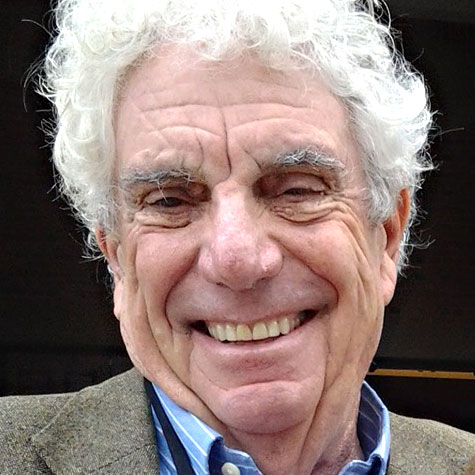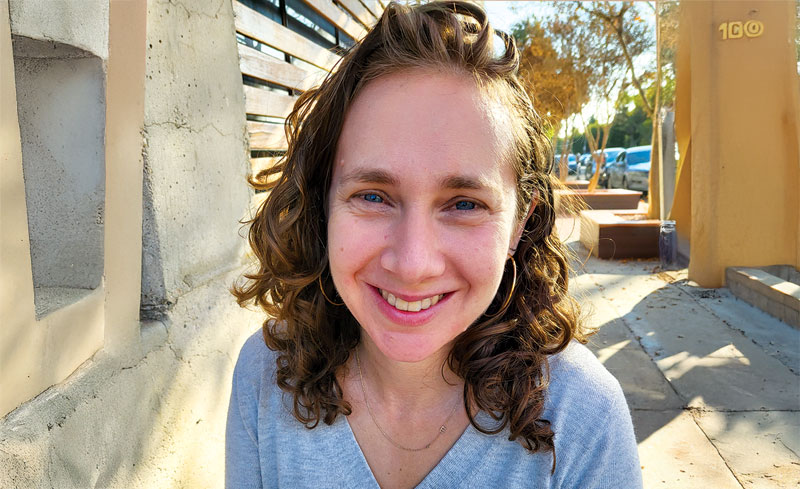Happily for them, most of the old-time Los Angeles anti-Semites who used to hang out at the downtown California Club are either dead or too old to care that a Jew is on the verge of
owning the L.A. Times.
Not just any Jew. Sam Zell looks as though he’s one tough Jew, probably even tougher than the old California Clubbers who stole the water from the Owens Valley and got rich in sneaky San Fernando Valley land deals.
Zell, a billionaire Chicago real estate developer, is the apparent winner in the battle for control of the Tribune Co., owner of the Times, the Chicago Tribune, several other newspapers, television stations, etc. The deal heavily burdens the company with debt and makes the employees his partner in the enterprise through creation of an employee stock ownership plan (ESOP).
Another Jew, David Geffen, is waiting in the wings, hoping to be either Zell’s joint-venture partner or to buy the Times from him.
However it turns out, we’ll probably have a Jew in charge of the Times, which was once one of old Los Angeles’ most famous WASP institutions. What a great day for old L.A. Jews with long memories of country clubs and downtown clubs that banned them; restrictive covenants that kept them out of certain fancy neighborhoods; anti-Semitic fraternities and sororities at USC and UCLA and law firms that never seemed able to find a place for a smart Jewish attorney. They also may have memories of the old Times, which, while not anti-Semitic, was a perfect reflection of the conservative Republican WASP culture of Los Angeles’ upper classes.
This culture would have had no room for Zell, a University of Michigan alum with a bachelor’s degree in 1963, a law degree in 1966 and a membership in Alpha Epsilon Pi, a Jewish fraternity.
I’ve never met Zell. But I got some insight from a story by Chicago Tribune reporters Michael Oneal and David Greising that noted, “Zell is known for his explosive, often profane outbursts, but colleagues say he is typically calm, focused and to the point.”
Then I watched a video of him being interviewed by the business editors and reporters of the Tribune. He was unlike any Times boss I ever met. He wore a striped sport shirt without tie or T-shirt and the kind of blue sport coat you’d buy at Target and wear with jeans. In fact, he likes jeans — and motorcycles.
In the video, he smiled a bit and talked about his Tribune deal in a relaxed, confident manner, not at all intimidated by the reporters. Why should he be? He’s a billionaire. They’re just reporters.
The most revealing moment in the interview came when one of the reporters asked Zell why he put together the deal.
“Because nobody has ever done it before,” he said. “The true test of an entrepreneur is someone who spends his life constantly testing his limits. The definition of an idiot is someone who has reached his goals.”
The deal, he said, “isn’t going to change my lifestyle, no matter what happens.” Then, in a moment that should be pondered by Tribune employees across the country, he said to the reporters, “It’s likely to change yours significantly.”
Did he mean they’d make a lot of money from their ESOP? Or will they see their retirement dollars fly away, Enron fashion? Or maybe, they’ll get laid off.
Zell’s family fled Poland the day before the Nazis invaded. An article in Dividend Alumni magazine, a publication of the University of Michigan’s business school, tells how Zell’s father, Bernard Zell, a grain broker, led his wife and young daughter on an 18-month journey across the Soviet Union to Japan and arrived in the United States in 1941. Sam was born that year.
“There’s this Yiddish word, derechertz, and it means respect,” Zell told Dividend Alumni writer James Tobin. “My father and mother, particularly my father, brought us up with the premise that respect was non-negotiable. Love was optional. I’m not saying this in a bad way. It was: ‘I want you to love me. But you have to respect me.’
“My dad was very, very strong and very confident. I had to be very confident and strong to succeed in his shadow.”
Forbes.com said his net worth is $4.5 billion. He began by buying a bunch of magazines, including Playboy, after his yeshiva classes in Chicago, taking them back to the suburbs on the train and selling them at a big markup to fellow students at his suburban school. In college, he got into property ownership and development. He could spot what was undervalued and make money from it. Thus he is perfect for the newspaper business, considered by Wall Street to be in terminal decline.
Many of us can relate to the Zell story, although ours probably does not have a billion- dollar outcome. The story is our heritage — fleeing from terror, making a difficult journey to the New World, struggling against all odds.
This was not the story told by most of those at the top levels of the Times when I got there in 1970. I was invited to luncheons for dignitaries in the most exclusive executive dining room. Everyone ate slowly and talked quietly. Silences were broken by the clink of expensive silverware. Nobody asked the dignitaries rude questions. I learned to eat slowly and not talk with my hands.
But the old Times was disappearing. Jews moved into top positions. As the years went on, one of our publishers was Dave Laventhol. We had a Jewish managing editor, a Jewish national editor and many other Jewish editors and reporters.
More than that, the grand lady of the Times, Dorothy Chandler, who was a daughter of a Long Beach merchant family and not part of the L.A. establishment, had made friends with Westside Jews. She was building the Music Center and figured that the culture-loving Jewish community would help finance the place. She helped Jews join the L.A. mainstream.























 More news and opinions than at a Shabbat dinner, right in your inbox.
More news and opinions than at a Shabbat dinner, right in your inbox.